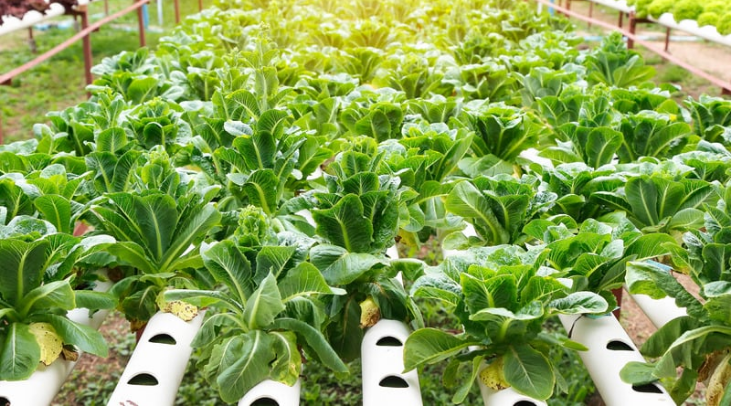The future of food production is at a tipping point and hydroponics is becoming a transformative force in agriculture. With growing concerns about climate change, land scarcity and unsustainable agricultural practices, hydroponics offers a sustainable, efficient and innovative solution to feeding a growing world population.
What is hydroponics?
Hydroponics is a method of growing plants without soil, using nutrient-rich water as the growing medium. This soil-free system allows precise control of nutrients, water and environmental conditions, making it a highly efficient form of agriculture.
Advantages of Hydroponic Farming
1. Efficient Use of Resources: Hydroponic farming uses up to 90% less water than traditional soil cultivation. Closed loop systems recycle water, minimizing waste and conserving this precious resource.
2. Year-round Farming: In a controlled environment, hydroponic farms can operate regardless of seasonal changes. This ensures a steady supply of fresh products throughout the year.
3. Space Optimization: Vertical hydroponic farms require minimal space while maximizing yields, making them a viable option in urban areas where available land is limited.
4. Reduced Pesticide Use: Growing crops in a controlled environment reduces the risk of pests and diseases and reduces the need for chemical pesticides. This ensures healthier, pesticide-free food for consumers.
5. Faster Growth and Higher Yields: Because plants have direct access to nutrients and optimal growing conditions, they grow 25-30% faster in hydroponic systems. Yields are often significantly higher compared to conventional farming methods.
Addressing global challenges
Hydroponics is especially valuable in areas with dry climates, poor soils, or limited arable land. Countries such as the United Arab Emirates and Singapore are already using the technology to enhance food security. Additionally, hydroponics reduces the carbon footprint of food production by centralizing agriculture in urban centers and reducing emissions from transportation.
The role of technology
Advances in agricultural technologies such as automation, IoT sensors, and artificial intelligence continue to revolutionize hydroponics. These technologies allow for real-time monitoring of plant health, nutrient levels, and environmental conditions to ensure optimal growth.
Hydroponics and Sustainability
Hydroponics fits perfectly into the global quest for sustainability. It solves important environmental issues by using renewable energy sources such as solar energy and reducing water consumption. Furthermore, there is no soil erosion or pesticide runoff, making it an environmentally friendly alternative to conventional agriculture.
Challenges and Future Directions
Although hydroponics has many advantages, challenges remain, including high initial setup costs, energy dependence, and the need for technical expertise.
Hydroponics is the future of agriculture – a future where farming is no longer limited by geography, climate or soil quality. It promises to provide a sustainable solution to the global food crisis while providing fresh, healthy, pesticide-free products. If adopted in this innovative way, hydroponics has the potential to revolutionize agriculture and pave the way to a more food-secure and sustainable world.

